Within every courtroom, there are scores of mini dramas taking place as the details of the case unfold... This was an intriguing prospect for our team as we sought to bring the so-called Gangland trial of the century to screen for the first time, writes the series producer and director of Gerry Hutch: AKA The Monk , John Downes of RTÉ's in-house documentary unit - watch it now via RTÉ Player
Mike O’Donnell is a man who certainly knows how to communicate. When he describes a scene, he uses phrases that suggest a soul who is comfortable with creative language. But it is when you put a pencil in his hand that his innate talent for self-expression truly shines. In his work as a court artist his job is, as he told me, to capture the essence of the scene with his sketches.
O’Donnell was one of those present in a packed courtroom on the opening day of Gerry Hutch’s trial for the 2016 murder of David Byrne at Dublin's Regency hotel.
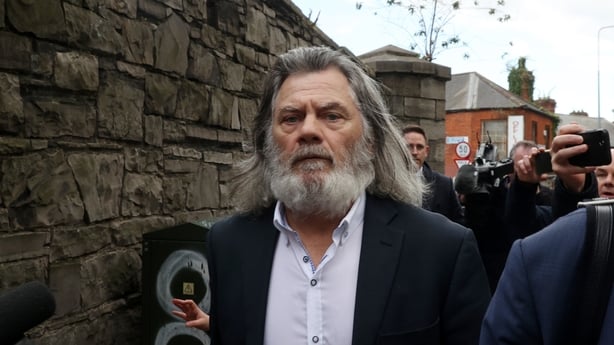
David Byrne in the Regency Hotel attack (file pic)
"When I entered the court, it was a teeming environment. There was a lot of people around," he says. "You have the legal people, you have the journalists, you have relatives of the people involved, you have court officials working there. Then you have obviously the judges, you have police, you have all these different strands of people working busily, all doing their own thing. Like on a film set."
From the minute Hutch walked into the Special Criminal Court in October 2022 and sat alongside his two co-accused - Jason Bonney and Paul Murphy, who were facing lesser charges of facilitating the Regency attack - O’Donnell felt Hutch stood out.
"The first time I saw Gerard Hutch I knew without anybody identifying him to me who he was. He had more… swagger is the wrong word... but kind of more presence than the others. He looked like a person who had spent his 40 days and 40 nights in the desert."
Another man well versed in the ups and downs of courtroom life is Mel Christle. In his day job, he is an eminent Senior Counsel. But he leads something of a double life: for years he has also been a leading light in the Boxing Union of Ireland. On the day of the Regency Hotel attack, in his role as president of that organisation, he was busy overseeing the weigh-in when two gunmen burst into the room.
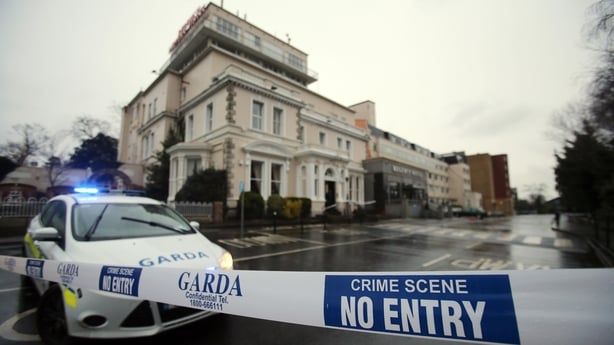
When he was called to testify on the opening day of the trial, he was acutely aware of the tension within the courtroom. The family of David Byrne, their grief still raw following the loss of their loved one, had to sit and listen as he recalled the details of that horrific day.
"I recall vividly the howl of pain from, I presume it was the mother of Mr. Byrne, because it was a female cry in the public area of the court. So, that will stay with me," he says, before quietly nodding to himself at the memory.
For Alison O’Riordan, the 52 days of the trial also represented a huge portion of her working life that year. She is employed as a court reporter and in that role covered every day of the case.
She watched intently as Jonathan Dowdall, the State’s star witness in the case, began to crumble under cross examination by Hutch’s defence counsel, Brendan Grehan SC.
During the first day of his evidence, "Dowdall never locked eyes with Gerry Hutch. He was going to commit what Gerry Hutch would consider the ultimate act of betrayal," she says.
By the end of his eighth day of evidence, and seventh under intense cross-examination, she says Dowdall looked like a broken man.
"He just wanted to get the hell out of that court room."
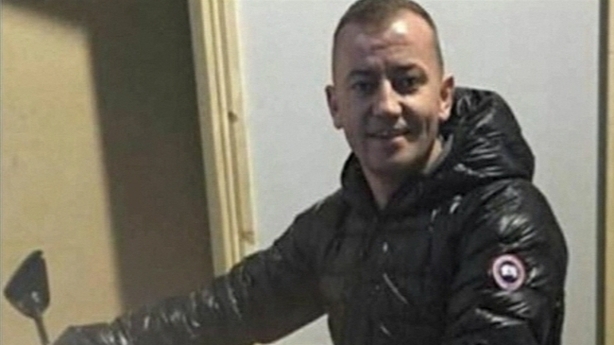
boxing weigh-in event at Dublin's Regency Hotel on February 5, 2016
As a documentary team, such dramatic and deeply human stories presented us with a real opportunity. We knew we wanted to bring a trial that had made Irish and international headlines to screen for the first time. But this also came with some very real challenges. Firstly, it was not possible to get a full transcript of the trial, as it is not something that is routinely released by the Special Criminal Court. Yet in order to be able to tell the story of the trial, albeit edited down for space, we had to be able to reliably recount what happened during key moments via our actors. So we had to be innovative.
Researcher Warren Swords set about methodically and forensically trawling through each day’s TV, radio and print online reports to see what similarities there were across these. With the help of the lengthy written court judgment - and Alison’s own copious notes from the trial - we were eventually able to do just this. It was then up to reconstructions director Kenny Mac Giolla Phádraig to use his ingenuity, with the support of ace DOP Alex Sapienza and many others from within our documentary unit and beyond, to bring the overall visual template we had designed to life.
The result is, I believe, a concluding episode which outlines much of the drama, and more importantly, many of the serious potential failings in the case against Gerry Hutch. Our re-telling of the key events and findings of the trial is by its nature a shortened version of a much longer trial. But throughout it all, two key questions emerge.
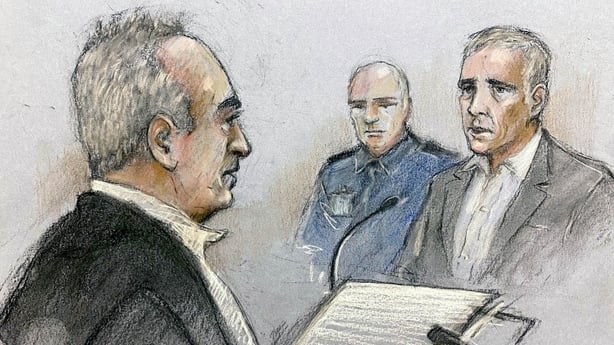
Jonathan Dowdall giving evidence at the Regency trial
How was Jonathan Dowdall, a man who had previously been convicted of waterboarding and falsely imprisoning an innocent man who came to buy a motorbike off him, ever considered to be a reliable State’s witness in such a major trial which relied so heavily on his credibility? And what might have happened to Gerry Hutch - who unsurprisingly walked free from court after the three judges in the case found him not guilty of the murder of David Byrne - had he also been indicted on lesser charges ? In its judgment, the court concluded beyond reasonable doubt that shortly after the Regency hotel attack Hutch had effective control of the AK 47s used in the killing of David Byrne. But it noted that he was not facing charges for this.
These and many other questions arising from the trial are perhaps for others to answer. Some experts point out that where there are a number of co-accused, it can simply be more straightforward to focus on one charge. For its part, the office of Director of Public Prosecutions when asked, said that it cannot comment on individual cases.
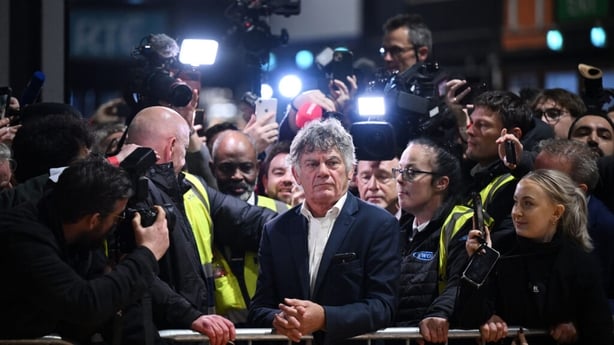
We do know that since the conclusion of the trial, Gerry Hutch came within a whisker of becoming a TD for Dublin Central, losing out on the last count to Labour’s Marie Sherlock, and reflecting real support for him among some in the community. It also prompted then Taoiseach (and current Tánaiste) Simon Harris to remark that he found it "kind of incredible that a criminal received nearly more media attention than most party leaders. Criminality isn’t celebrity, it’s something that brings pain misery and suffering to communities. I think we do need to reflect on the disaffection that sometimes people can feel from the political system." Hutch's near-election is something that we also examine in this concluding episode.
We also know that Gerry Hutch is currently facing further potentially serious legal challenges in the form of money laundering allegations in Spain, and that he features separately in an ongoing high level Garda anti-corruption investigation.
If the Regency trial, with all of its innate human drama and potential for major surprises is anything to go by, few would bet against him walking out from any future court case as a free man one more time. As Gerry Hutch has always claimed, this is because he remains an innocent man, who has not been convicted in any court since 1983.
Gerry Hutch: AKA The Monk continues this coming Monday, February 17th at 9.35 pm on RTÉ One - catch up afterwards via RTÉ Player
